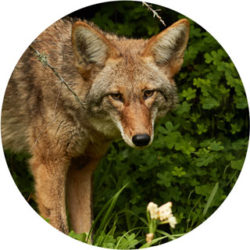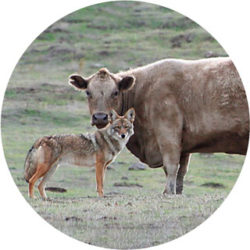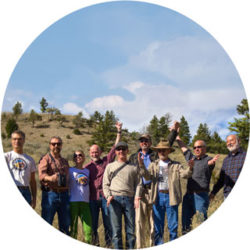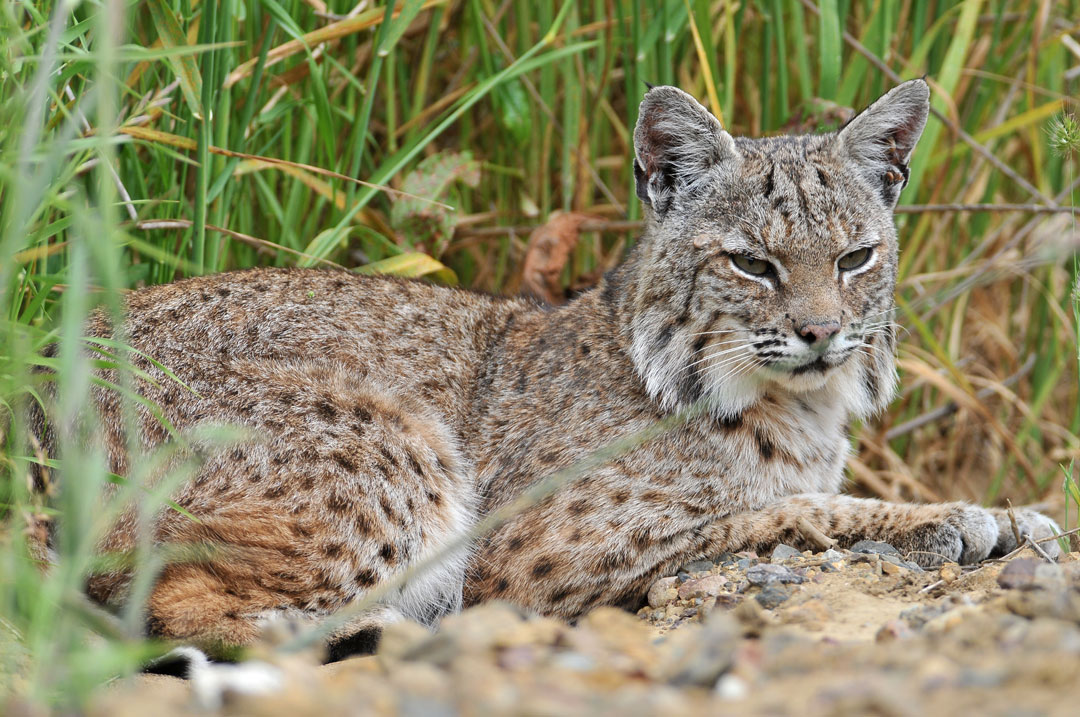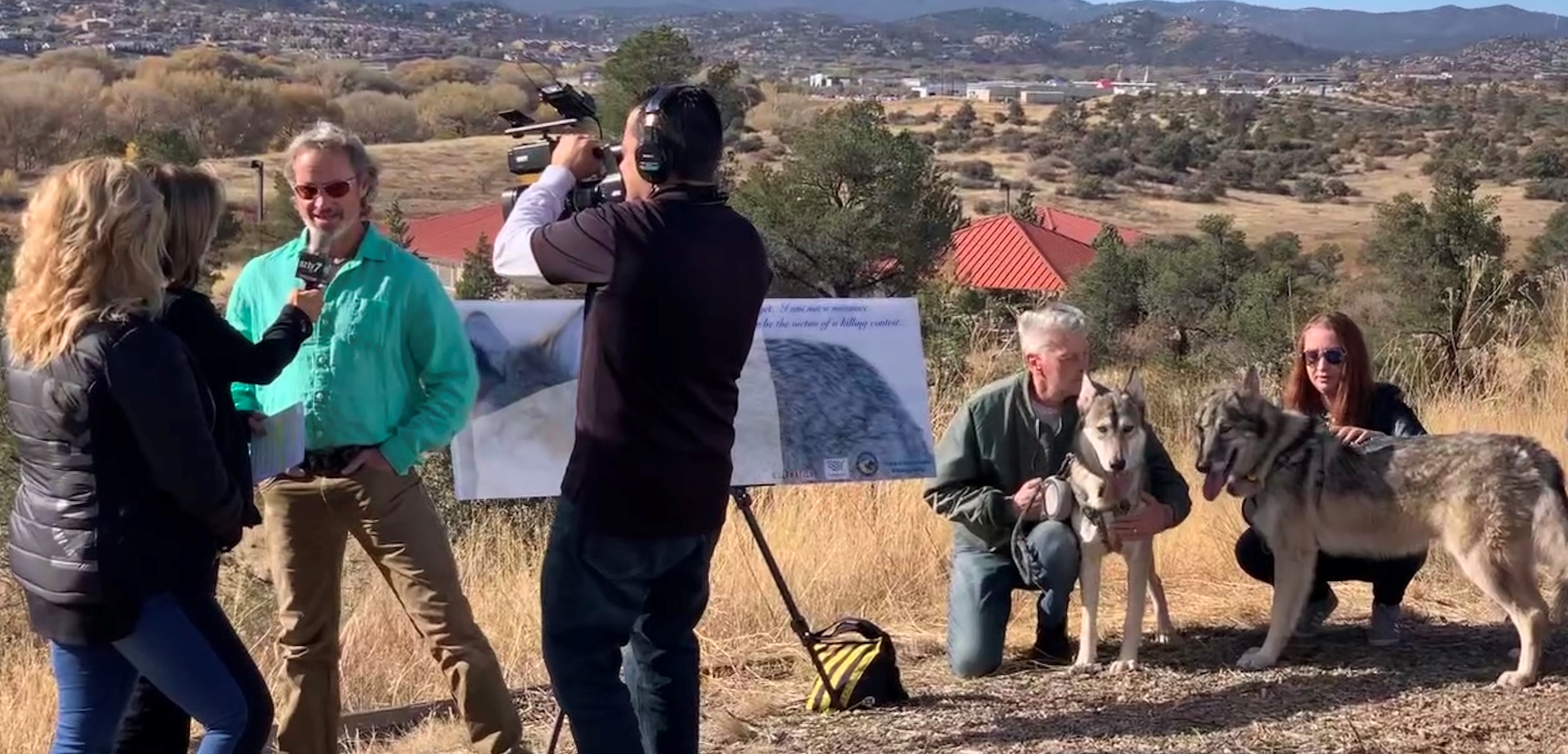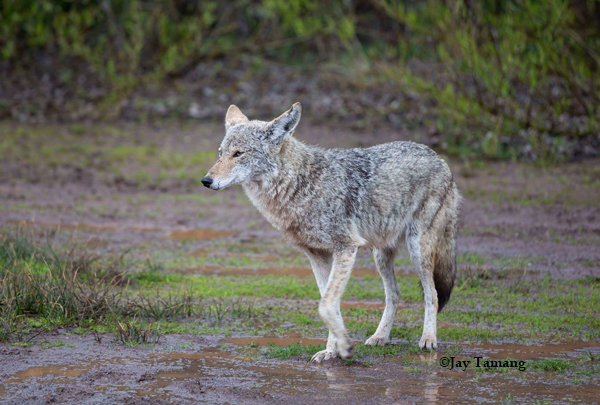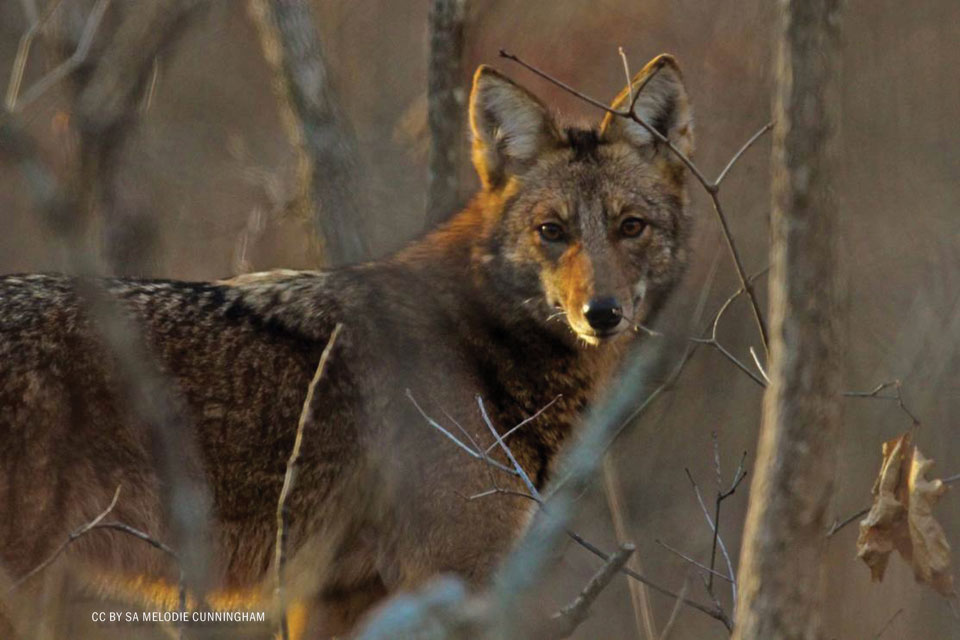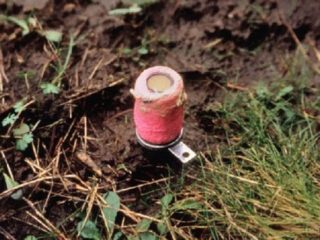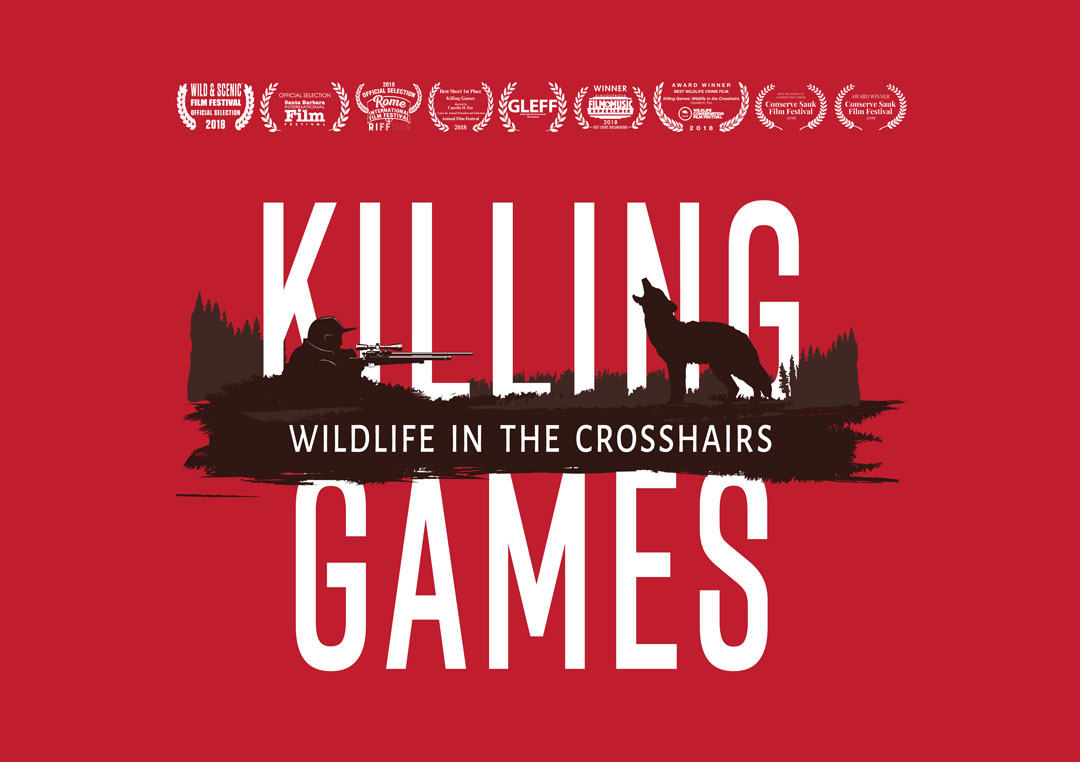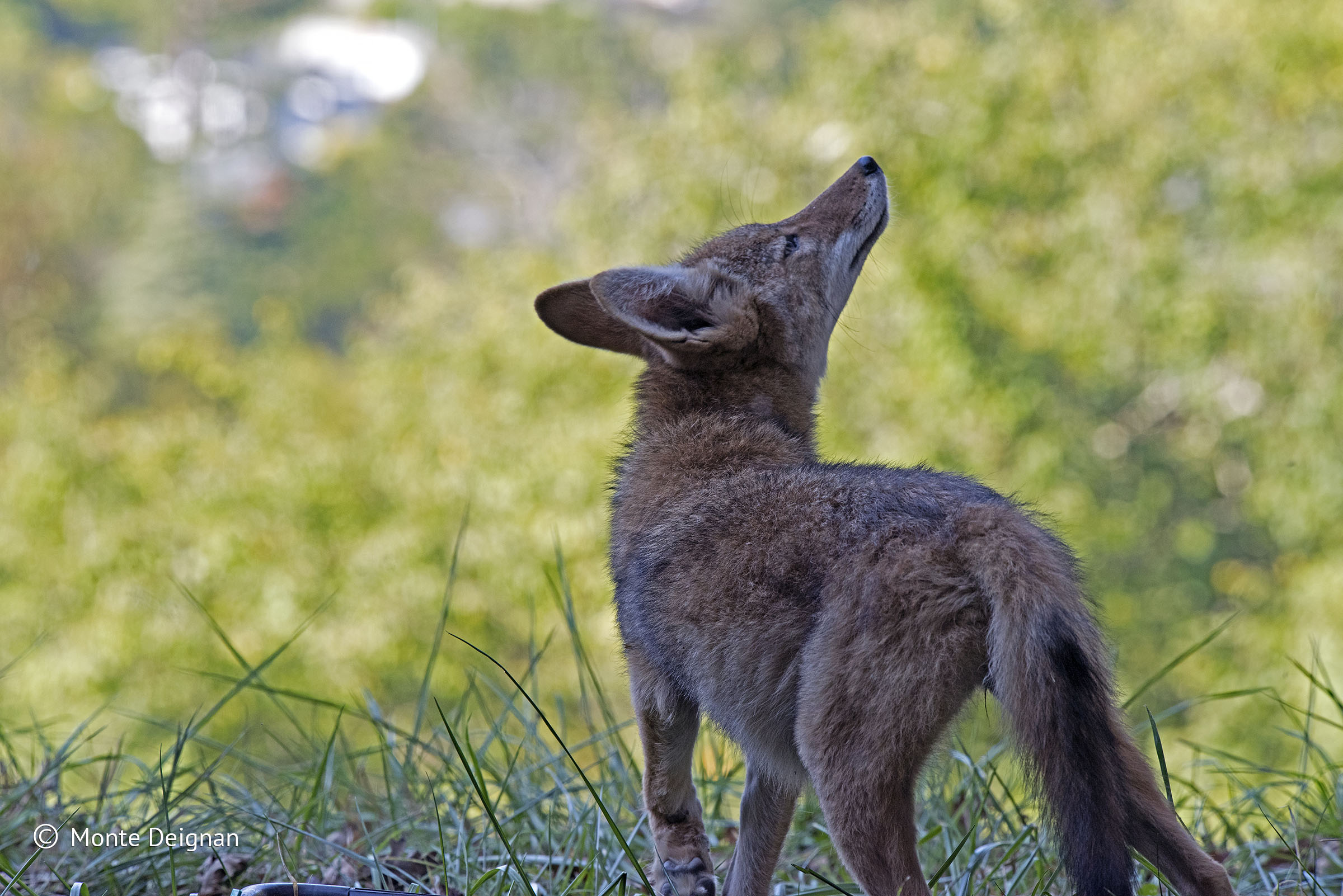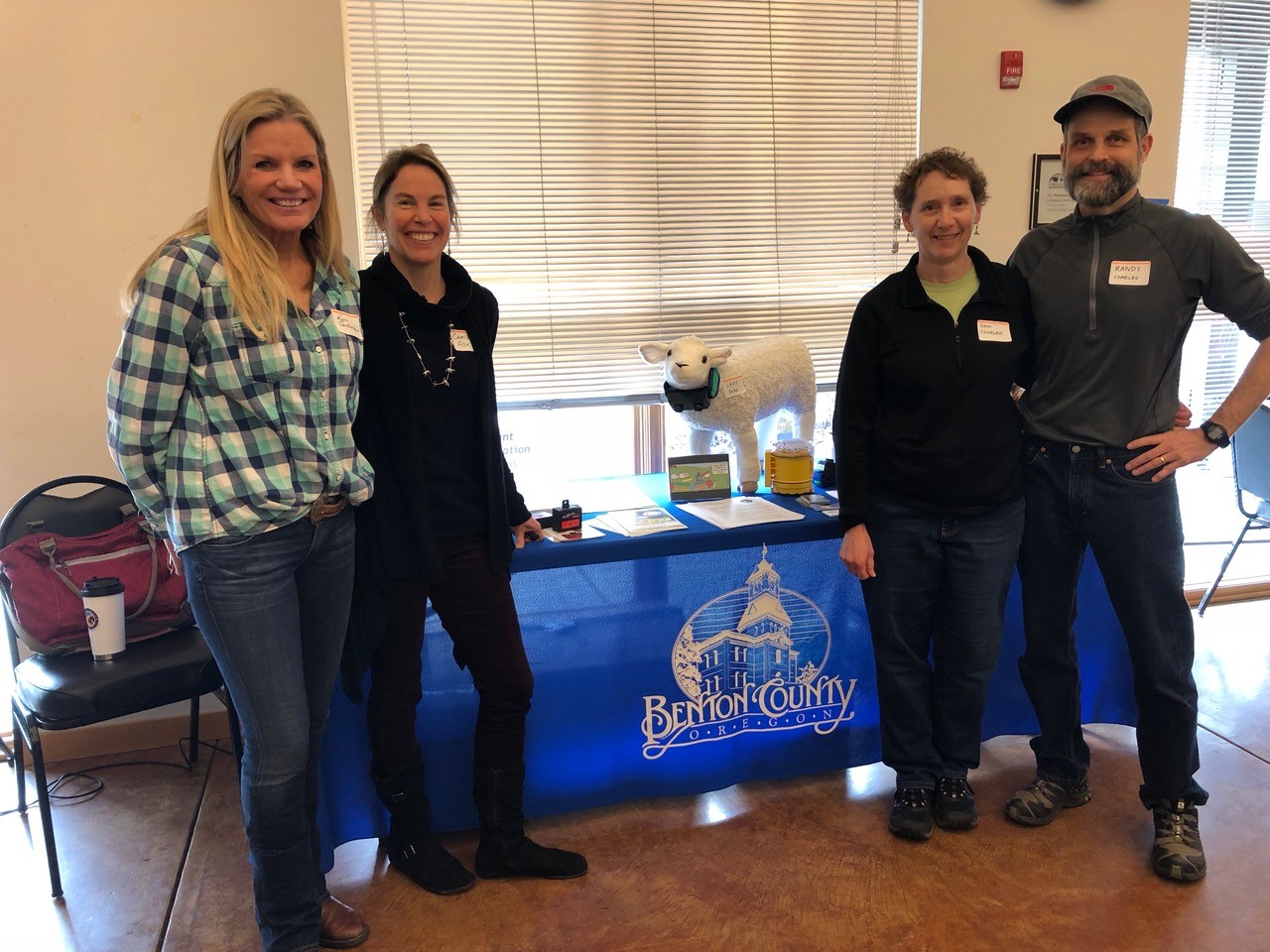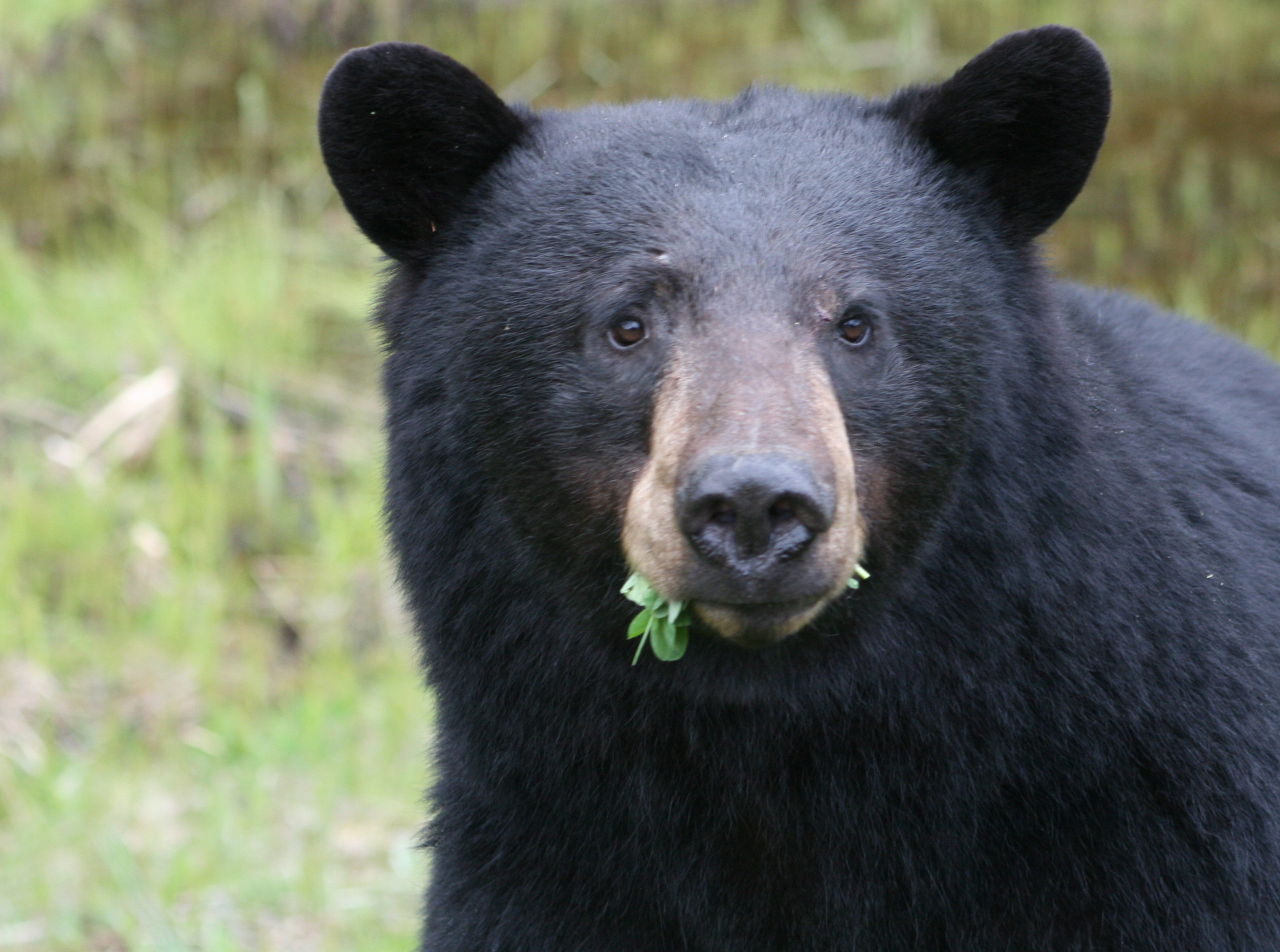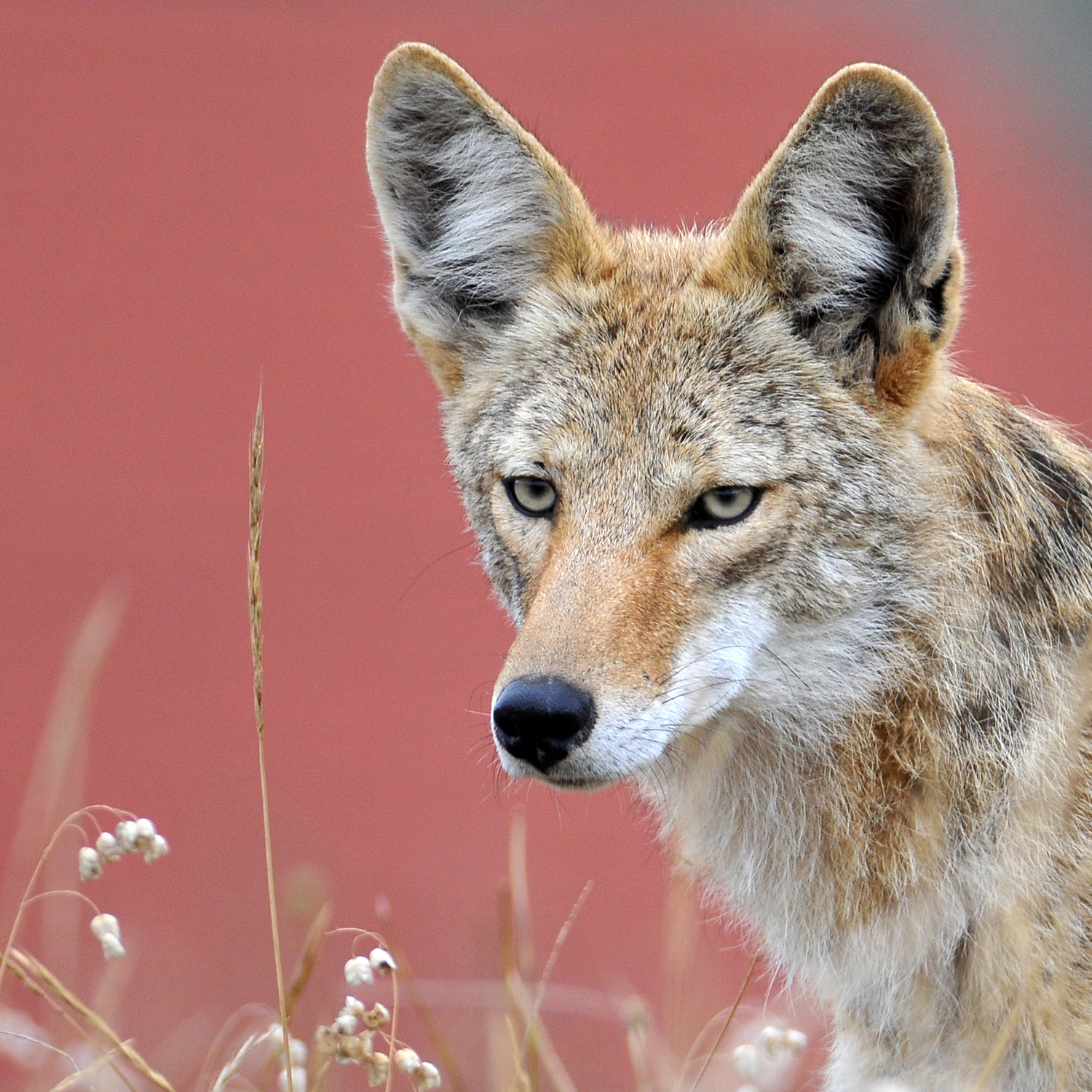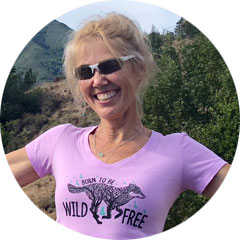NOVEMBER 2019 IN THIS ISSUE:
Never doubt that a small group of thoughtful, committed citizens can change the world; indeed, it’s the only thing that ever has.
~Margaret Mead
What a last few months it has been—from California paving the way for the rest of the nation by banning commercial and recreational trapping, the manufacturing and sale of fur, and bobcat trophy hunting to Arizona becoming the fourth state in the nation to abolish wildlife killing contests.
All of these victories were a result of individual citizens and organizations working together to tackle these difficult issues. My core belief has always been that the only way we are going to create systemic reform in the way we treat wildlife in North America is to work together. During the last few years, I have seen the formation of effective coalitions that are harnessing the power of grassroots advocacy to synergize with and strengthen strategic policy and media initiatives.
Looking ahead to 2020 and beyond, we are working hard to continue building these regional coalitions—most recently in the Great Lakes region, where individuals and organizations are coming together to target wildlife killing contests. (Read more below about the recent screening of our film KILLING GAMES ~ Wildlife In The Crosshairs at the Conserve Sauk Film Festival in Baraboo, WI.)
As we celebrated World Kindness Day last week, I want to thank all of our supporters for your compassion and generosity in helping us continue this important work for wildlife—and for your actions in helping us achieve these victories for the voiceless animals.
I hope you enjoy this edition of Coyote Chronicles!
For Wild Nature,
Camilla H. Fox
Founder & Executive Director
REFORMING PREDATOR MANAGEMENT
CALIFORNIA
California Sets National Precedents for the Humane Treatment of Wildlife. California Governor Gavin Newsom signed three historic bills in September and October that banned the commercial and recreational trapping of animals for their fur (AB 273); the fur trade (AB 44); and the trophy hunting of bobcats (AB 1254). Thanks to our colleagues with the Center for Biological Diversity, the Humane Society of the United States and other allies- as well as our many supporters who responded to our alerts and took action to help funnel these bills through the legislature. Together, these new laws will spare countless bobcats, coyotes, foxes and other animals from cruelty and senseless death. Read more here and here.
CALIFORNIA
Ending the USDA’s Taxpayer-Funded War on Wildlife: Every year, the USDA’s Wildlife Services (“WS”) pointlessly kills millions of native wild animals – including wolves, bears, coyotes, cougars – and, incidentally, non-target wildlife and even companion animals – using taxpayer dollars. The agency poisons, traps, aerial guns, and kills pups in their dens. In addition to federal reform, we’ve been working to end WS’ contracts with local governments and encouraging counties to instead implement nonlethal methods to prevent conflicts with carnivores. In 2015, Project Coyote and coalition partners sued Mendocino County to cancel their contract with WS, arguing that WS’s lethal methods are cruel, senseless, and counterproductive to sound wildlife management. The coalition successfully demonstrated that the county violated state law by failing to analyze the impacts of its lethal killing program on the environment and on target and non-target animals. The Project Coyote pack and our coalition partners submitted comprehensive comments in August in response to Mendocino County’s 915-page Draft Environmental Impact Report, which the County developed as part of the settlement negotiations resulting from our 2015 lawsuit. Also in August, Project Coyote joined the Center for Biological Diversity and the Animal Legal Defense Fund in filing suit against USDA Wildlife Services in Northern California for failure to comply with federal law before implementing its lethal control program in the Sacramento District. In a similar lawsuit filed against Monterey County in 2017, the California Superior Court ruled that Monterey County’s contract with the U.S. Department of Agriculture’s Wildlife Services program to kill predators and other native wildlife violated the California Environmental Quality Act. More here and here.
ARIZONA
Eradicating Wildlife Killing Contests: In September, Arizona became the 4th state to take a stand against wildlife killing contests – barbaric events in which participants kill animals including coyotes and foxes for prizes and entertainment. The Governor’s Regulatory Review Council approved Arizona Game & Fish’s rule that prohibits the competitions for predatory and furbearing species in Arizona. Project Coyote, our coalition partners, concerned citizens and other wildlife conservation organizations worked tirelessly on the campaign. Read more here, here and here.
MASSACHUSETTS
Taking Steps to Prohibit Senseless Killing of Wildlife: MassWildlife has proposed regulations that would ban killing contests for thirteen wildlife species (including coyotes, bobcats, foxes and raccoons) and prohibit the “wanton waste” of wildlife. The agency acknowledged “public concerns that these hunting contests are unethical, contribute to the waste of animals, and incentivize indiscriminate killing of wildlife, inconsistent with the North American Model of Wildlife Conservation.” The agency further recognized that, “public controversy over this issue has the potential to threaten predator hunting and undermine public support for hunting in general.”
MASSACHUSETTS
Protecting Coyotes on Wildlife Refuges: After intense public opposition, the Monomoy National Wildlife Refuge dropped a plan to allow recreational coyote hunting. Monomoy, one of 70 refuges across the country that are expanding hunting and sport fishing, received 48 comments on the proposal—almost all were opposed to the plan.
NEW MEXICO
Safeguarding People, Pets and Wildlife Against Indiscriminate Traps: The New Mexico State Game Commission has reviewed the state’s trapping laws, and as a result has proposed a set of changes. The Trap Free New Mexico coalition (which includes Project Coyote) believes that these changes largely cater to special interest trapping groups and fall far short of addressing the public’s concerns about trapping. We encourage all New Mexico residents to speak up to help ban trapping on New Mexico’s public lands!
NATIONAL
Speaking Up Against Cruel Poisoning of Wildlife: Federal lawmakers have introduced legislation (H.R. 2471 / S. 1301) to outlaw USDA Wildlife Services’ use of two extremely dangerous poisons – the sodium cyanide found in M-44 devices, and sodium fluoroacetate, known as Compound 1080, which is used in “livestock protection collars.” Canyon’s Law is named after Canyon Mansfield, a boy who was hospitalized and whose dog Casey was killed by an M-44 “cyanide bomb.” Take action to support this bill here.
NATIONAL
KILLING GAMES ~ Wildlife In The Crosshairs: Project Coyote’s compelling documentary about the cruel bloodsport of wildlife killing contests, continues to engage and inspire audiences across the country. The film had its Minnesota premiere in July 2019 at The Wild & Scenic Film Festival, hosted by Wolves of Douglas County Wisconsin. The first annual Wisconsin & Minnesota Wildlife Photography Contest was held in conjunction with the film showing, and prizes were awarded at the screening itself.
NATIONAL
Most recently, KILLING GAMES won Best Treatment of Conservation Theme at Conserve Sauk Film Festival. Science Advisory Board members Adrian Treves and Francisco Santiago-Ávila were there to accept the award and answer questions, and representatives from our coalition partner the Humane Society of the United States were also there to speak to attendees about killing contests.
REFORMING PREDATOR MANAGEMENT & COYOTE FRIENDLY COMMUNITIES
Partnering to Empower Animal Control Officers: Massachusetts Representative John Maguranis represented Project Coyote at the 2019 National Animal Care & Control Association conference in Orlando, FL, in early October. John, who has extensive experience as an animal control officer (“ACO”), is working to equip ACOs nationwide with the tools they need to educate their communities about coyotes and coexistence! Read John’s blog about this unique partnership here – and more about NACA coming soon.
Developing Humane, Nonlethal Wildlife Conflict Solutions: Camilla, Science Advisory Board Member Bob Crabtree, and Advisory Board Member Don Lipmanson joined the Mendocino Non-lethal Wildlife Alliance in presenting Our Wild Neighbors in Caspar, CA. Mendocino County is at a critical juncture in its handling of wildlife – facing a decision either to continue needlessly killing wildlife, or to adopt a science-based and compassionate non-lethal approach to resolving conflicts between humans and our wild neighbors. The full house at this event attested to the enormous community interest in compassion over killing. More here.
RANCHING WITH WILDLIFE
Inspiring Farmers and Ranchers to Implement Nonlethal Alternatives: Benton County resident Randy Comeleo’s article, Using Coyotes to Protect Livestock. Wait. What?, made waves when Oregon State University Extension published it in 2018. The article was recently republished in the online magazine for graziers, On Pasture, which has over 100,000 subscribers. On Pasture’s editor reported that the article broke daily readership records – reaching at least 4 times more reads in the first week than the average article – and was shared nearly 500 times on Facebook. In 2017- with the help of Project Coyote- Randy and his wife Pam successfully convinced Benton County to implement an innovative two year pilot program – the Agriculture and Wildlife Protection Program (AWPP) – that funds education and outreach to farmers and ranchers to encourage them to use non-lethal methods to prevent conflicts with wildlife. AWPP provides grants to ranchers and farmers to help them purchase and implement non-lethal deterrents. Camilla, Bob Crabtree, and Project Coyote’s Ranching with Wildlife Coordinator Keli Hendricks serve as AWPP’s program advisors. Read more about Randy and Pam’s efforts here.
Encouraging Mendocino County to pursue non-lethal alternatives to managing conflicts with wildlife: On November 20, Project Coyote will again join forces with the Mendocino Non-lethal Wildlife Alliance in co-sponsoring a Ranching with Wildlife public forum at the Redwood Valley Grange in Redwood Valley, CA. Speakers include Keli Hendricks, as well as Marin County Agricultural Commissioner Stacy Carlsen (who oversaw implementation of the Marin County Livestock and Wildlife Protection Program) and UC Hopland Research and Extension Center Director John Bailey.
Living with Wildlife podcast: KZYX’s Ecology Hour September 3 podcast featured Camilla; John Bailey; Devon Jones, the Executive Director of Mendocino County Farm Bureau; and Kyle Farmer of the Magruder Ranch in a comprehensive discussion of wildlife-related issues facing the County’s farmers, ranchers, and the community.
SCIENCE AND STEWARDSHIP
Study: Coyotes are a Keystone Predator in the Southeast: Science Advisory Board Member Chris Mowry and Emory University’s Larry Wilson published an article in July, Species Richness Within an Urban Coyote Territory in Atlanta, Georgia, USA, about a 24-month study they conducted that used cameras to monitor an urban green space in Atlanta inhabited by a coyote pair and their offspring for the duration of the study. The study “found evidence of high species diversity, which is contrary to common misconceptions that portray coyotes as detrimental towards rich community composition.” The coyotes shared the area with 22 bird, 12 mammal, and 2 reptile species, indicating that coyotes did not adversely impact the area. Read an article about the study here and see clips from the livestream video here.
NEW TEAM MEMBERS
Kim Boester
Program Associate
Laura Honda
Wildlife Educator
Sarah Killingsworth
Wildlife Educator
Rob Ruiz
Wildlife Educator
ADDITIONAL EVENTS OF NOTE
Dan Flores Presentation on Coyotes, Humans, and the West (August 14, 2019): Project Coyote Ambassador Dan Flores shared his extensive knowledge with a fascinated audience at the Jackson Hole Historical Society and Museum.
Wine Country Optics & Nature Festival (September 14, 2019): Ranching with Wildlife Coordinator Keli Hendricks and Volunteer Sharon Ponsford represented Project Coyote at this very popular (and hot!) event, where multiple optics companies were on hand to demo the latest in optics gear.
WCN Fall Expo (October 12, 2019): The Project Coyote team joined some of the world’s leading wildlife organizations in San Francisco for this annual gathering of renowned scientists, eminent conservationists, and engaged members of the public to connect, share stories and knowledge, and make life-long friendships.
RECENT NEWS
Wildlife Killing Contests are Unethical (Oct. 16, 2019)
Can UW-Madison rebuild coexistence between ourselves and our animal neighbors? (Oct. 3, 2019)
OURS: Brood counts blow holes in predator bounty rationale (Sept. 13, 2019)
Living with wildlife (Aug. 30, 2019)
Palm Springs area dog owners on high alert after coyote attack on pet. Here’s what you should do (Aug. 29, 2019)
Lawsuit challenges federal predator control program in Northern California counties (Aug. 27, 2019)
Coyotes Can Protect Your Livestock From Predators (Aug. 26, 2019)
Ultra-lethal ‘Cyanide Bombs’ Used To Kill Public Wildlife Banned For Now In Wyoming (Aug. 20, 2019)
Science vs Policy: Future of the Mexican Wolf with David Parsons (Aug. 6, 2019)
Local expert working to raise coyote awareness in Arlington (Aug. 5, 2019)
Join our E-TEAM
Get periodic e-news, action alerts, and join our growing network of educators, scientists, predator friendly ranchers and citizen leaders who are helping people and wildlife coexist in our communities.
Join a growing community of educated and empowered citizens by expressing your commitment to compassionate conservation with a financial investment.
You can DONATE, become a SPONSOR or leave a LEGACY GIFT.


